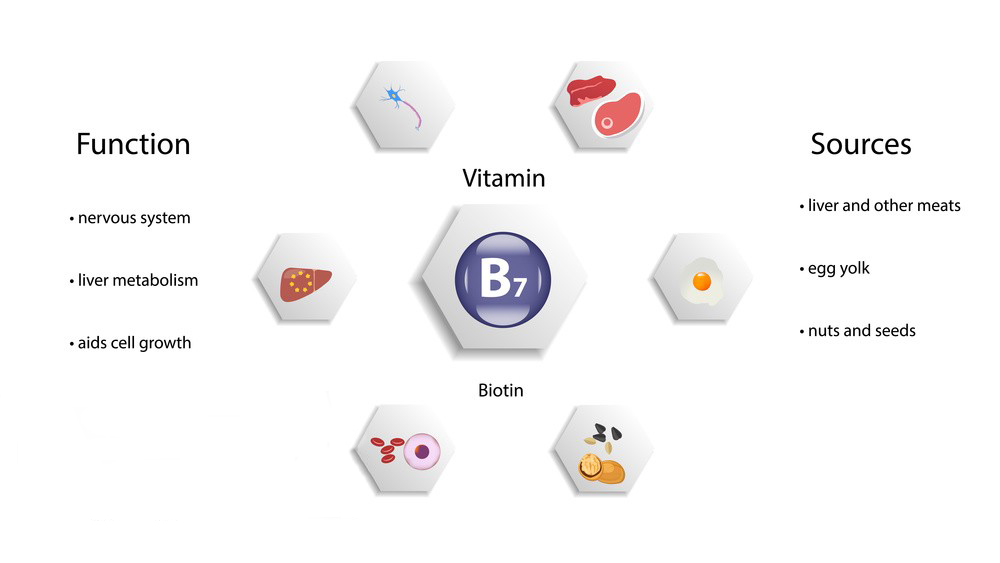Biotin, also known as vitamin B7 or vitamin H, is a water-soluble B-vitamin that plays a crucial role in various physiological processes within the body. It is essential for the metabolism of carbohydrates, fats, and proteins, and is involved in maintaining healthy skin, hair, and nails. Here are some of the functions and benefits of biotin:

- Metabolism: Biotin is involved in the metabolism of macronutrients, such as carbohydrates, fats, and proteins. It helps convert these nutrients into energy that the body can use.
- Healthy Skin: Biotin is important for maintaining healthy skin by supporting proper functioning of sweat glands and skin cells. It contributes to the production of fatty acids that nourish the skin and helps maintain its integrity.
- Hair Health: Biotin is often associated with promoting healthy hair growth and preventing hair loss. It is believed to play a role in the production of keratin, a protein that is a major component of hair.
- Nail Strength: Biotin is thought to contribute to the maintenance of strong and healthy nails. It may help prevent brittle nails and promote their overall health.
- Neurological Function: Biotin is involved in the functioning of the nervous system. It plays a role in maintaining healthy nerve cells and is important for proper nerve signaling.

- Cell Growth and Replication: Biotin is essential for cell growth and replication. It is particularly important during pregnancy and infancy when rapid cell division and growth are occurring.
- Blood Sugar Regulation: Biotin may have a role in helping to regulate blood sugar levels. It can influence the activity of certain enzymes involved in glucose metabolism.
- Supporting Enzyme Activity: Biotin acts as a coenzyme for several enzymes involved in various metabolic processes, including the breakdown of amino acids and the synthesis of fatty acids.
- Prenatal Health: Biotin is important for pregnant women as it supports embryonic growth and development. However, pregnant women should consult with their healthcare provider before taking biotin supplements.
- Maintaining Healthy Eyes and Mucous Membranes: Biotin is involved in maintaining the health of mucous membranes, which are important for the health of the eyes, respiratory system, and digestive tract.
Biotin deficiency is relatively rare and can lead to symptoms such as hair loss, skin rash, brittle nails, fatigue, and neurological symptoms. However, most people obtain sufficient biotin through a balanced diet, as it is found in a variety of foods including eggs, nuts, seeds, organ meats, dairy products, and certain vegetables.
It’s important to note that while biotin supplements are commonly available, excessive intake can lead to inaccurate laboratory test results, as biotin can interfere with certain blood tests. If you’re considering taking biotin supplements, it’s a good idea to consult with a healthcare professional to determine if it’s necessary and to discuss the appropriate dosage.
